August 11, 2023
Lack of employee engagement continues to dog organisations around the world
 A declining share of employees said they were motivated to go above and beyond at work, or were inspired to do their best work, according to the latest employee engagement benchmark data from Qualtrics. The new proprietary data – aggregated from thousands of employee engagement surveys administered in 2022 – shows symptoms of burnout and a significant drop in confidence in leaders from 2020, when the pandemic ‘upended workplaces’ around the world. The report argues that employees are willing to tell their employers that they were struggling, and if something doesn’t change, they may look for a new job. Labour productivity also reflected this drop in motivation, the report claims. (more…)
A declining share of employees said they were motivated to go above and beyond at work, or were inspired to do their best work, according to the latest employee engagement benchmark data from Qualtrics. The new proprietary data – aggregated from thousands of employee engagement surveys administered in 2022 – shows symptoms of burnout and a significant drop in confidence in leaders from 2020, when the pandemic ‘upended workplaces’ around the world. The report argues that employees are willing to tell their employers that they were struggling, and if something doesn’t change, they may look for a new job. Labour productivity also reflected this drop in motivation, the report claims. (more…)








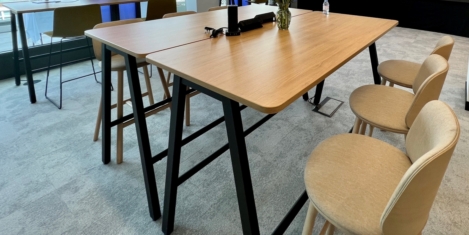
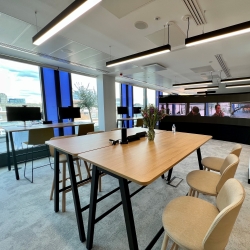 Zoom has opened a new London ‘Engagement Hub’ which the firm claims will spearhead the shift from traditional office spaces to ‘experiential working hubs’. With the demand for hybrid working and remote capabilities giving rise to unconventional ways of operating, Zoom says it has designed its new office to support the changing nature of the employee experience, marking a new era of modern work.
Zoom has opened a new London ‘Engagement Hub’ which the firm claims will spearhead the shift from traditional office spaces to ‘experiential working hubs’. With the demand for hybrid working and remote capabilities giving rise to unconventional ways of operating, Zoom says it has designed its new office to support the changing nature of the employee experience, marking a new era of modern work. 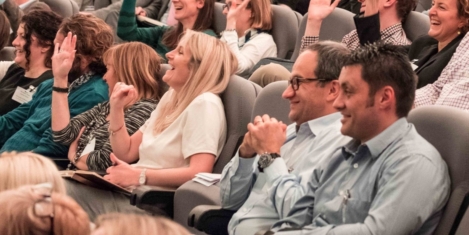
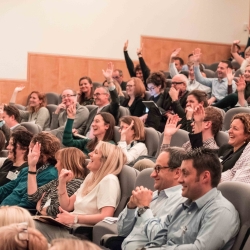

 As organizations adopt hybrid work, reduce their real estate footprint and redesign floor plans, space planners are running into a slew of new challenges. Yesterday’s antiquated tools can’t handle these challenges, because they were built for the old, relatively static world of work.
As organizations adopt hybrid work, reduce their real estate footprint and redesign floor plans, space planners are running into a slew of new challenges. Yesterday’s antiquated tools can’t handle these challenges, because they were built for the old, relatively static world of work. 

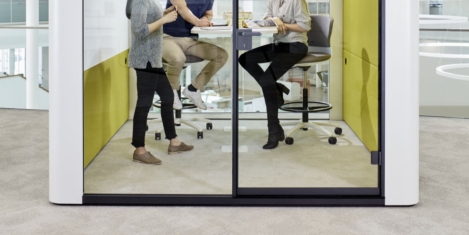
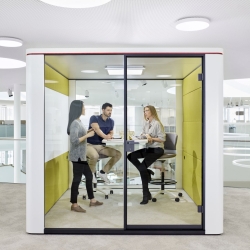



 After two years on Brighton seafront,
After two years on Brighton seafront, 
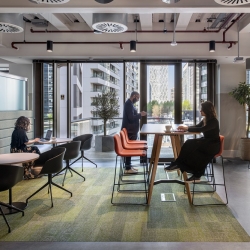

 Quoting George Orwell is the kind of thing that people who haven’t read Orwell do. The term Orwellian is used by people who have not only not read him, but have latched on to some laundered idea of the themes of his work. They are not only misrepresenting him, but misrepresenting a misrepresentation. If it were true that the dead could spin in their graves, Orwell would solve the world’s energy crisis. He could power the Northern Hemisphere by reacting to the liberties taken with Nineteen Eighty-Four alone. Anyway. I have read him so you and he will have to forgive me for what I’m about to say.
Quoting George Orwell is the kind of thing that people who haven’t read Orwell do. The term Orwellian is used by people who have not only not read him, but have latched on to some laundered idea of the themes of his work. They are not only misrepresenting him, but misrepresenting a misrepresentation. If it were true that the dead could spin in their graves, Orwell would solve the world’s energy crisis. He could power the Northern Hemisphere by reacting to the liberties taken with Nineteen Eighty-Four alone. Anyway. I have read him so you and he will have to forgive me for what I’m about to say. 










August 14, 2023
What the office of the future will really look like is the office of today
by Mark Eltringham • Comment, Workplace design